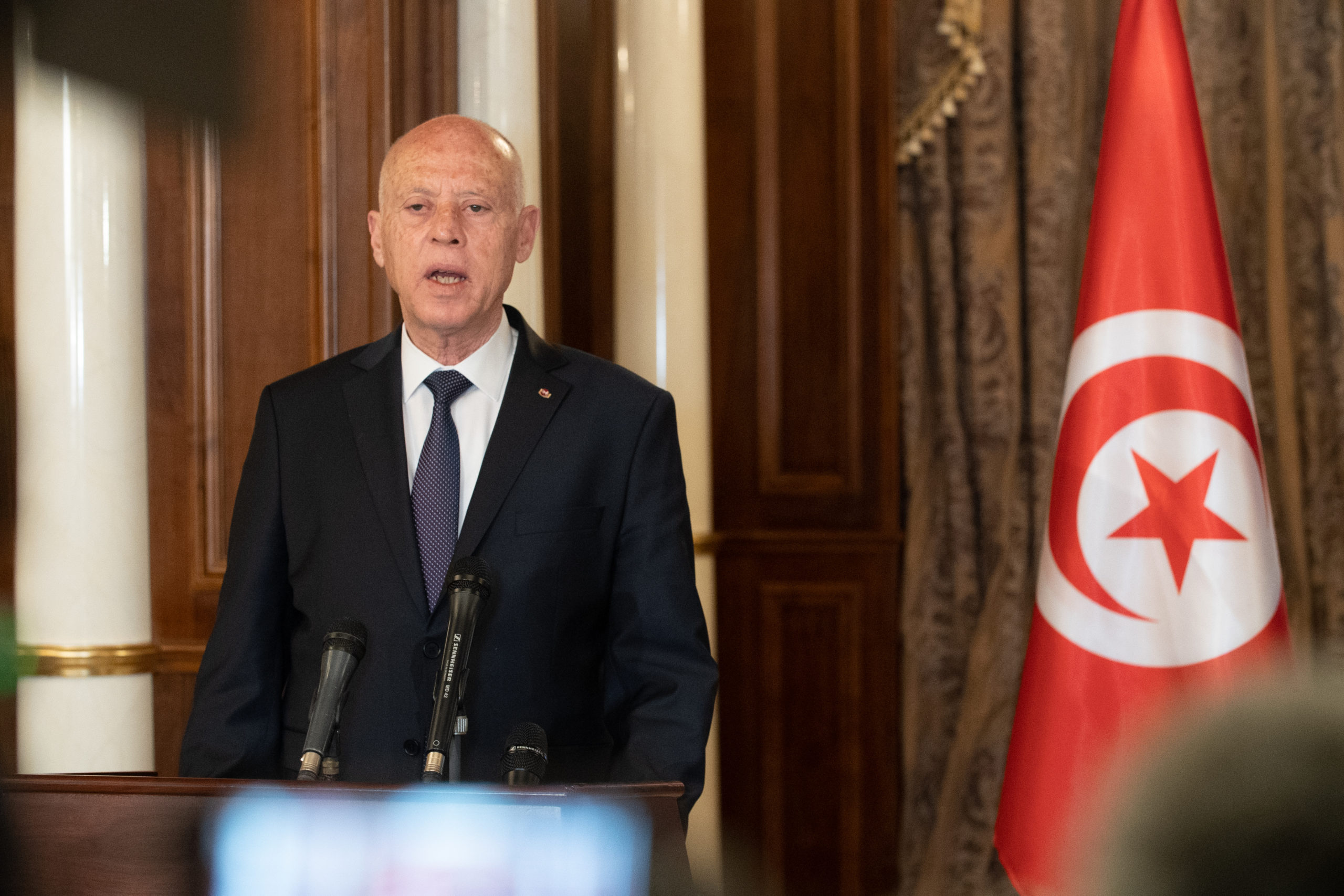Presidential Decree 11 of 2022 on the establishment of a Temporary High Judicial Council (THJC) is unconstitutional and must be revoked, the International Commission of Jurists (ICJ) said today.
Under the 2014 Constitution, the High Judicial Council (HJC) is the body in charge of ensuring judicial independence and oversight of the career of judges. Most of its members are judges, elected by their peers.
On the 6 February 2022, President Kais Saied announced his intention to dissolve the HJC by decree. One day later, Tunisia’s police closed down the HJC’s building and prevented its members from carrying out their constitutional duties.
“Decree 11 brings about the subordination of the judiciary to the executive, and makes each individual judge subservient to the President,” said the Director of the ICJ’s MENA program, Said Benarbia.
“The Decree dismantles the institutional architecture guaranteed by the Constitution and Tunisian law to safeguard and preserve judicial independence; effectively, it erodes the very fabric of the constitutional order in the country.”
Under the 2014 Tunisian Constitution and the 2016 High Judicial Council law, a majority of the HJC’s members must be magistrates elected by their peers. Other members include ex officio judges and independent experts.Under Decree 11, however, the President of the Republic either directly appoints or otherwise influences the appointment of all members of the new body. None of them is elected.
Decree 11 further allows the President of the Republic to influence all aspects related to the oversight of the career of judges, including their selection, appointment, promotion and transfer. In addition, the Decree empowers the President to request the removal of judges and even to act in lieu of the disciplinary body in charge of ordering such removals.
“If implemented, the Decree would end any semblance of judicial independence and the separation of powers in the country, and would bring Tunisia back to its darkest days, when judges were transferred and dismissed at the whim of the executive,” added Benarbia.
Under international law and standards, an independent judicial council is key to ensuring the institutional independence of the judiciary, the individual independence of judges and the separation of powers. Judicial councils should be bodies that are independent of the executive and legislative powers and a significant proportion of their membership should comprise judges chosen by their peers.
Download this press release in English or in Arabic.
Contact
Said Benarbia, Director of the ICJ’s Middle East and North Africa Programme, email: said.benarbia(at)icj(dot)org, phone number: +41-22-979-3817
Asser Khattab, Research and Communications Officer at the ICJ’s Middle East and North Africa Programme, email: asser.khattab(at)icj(dot)org





